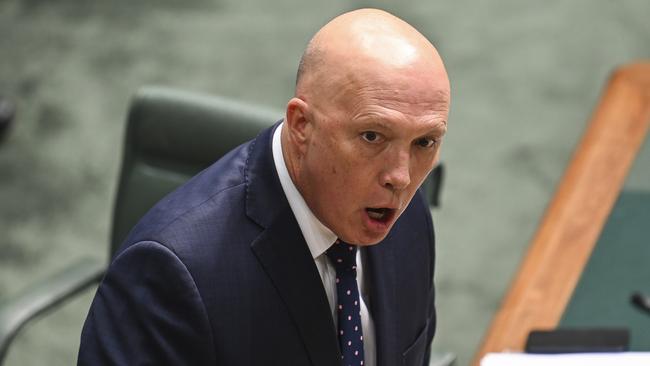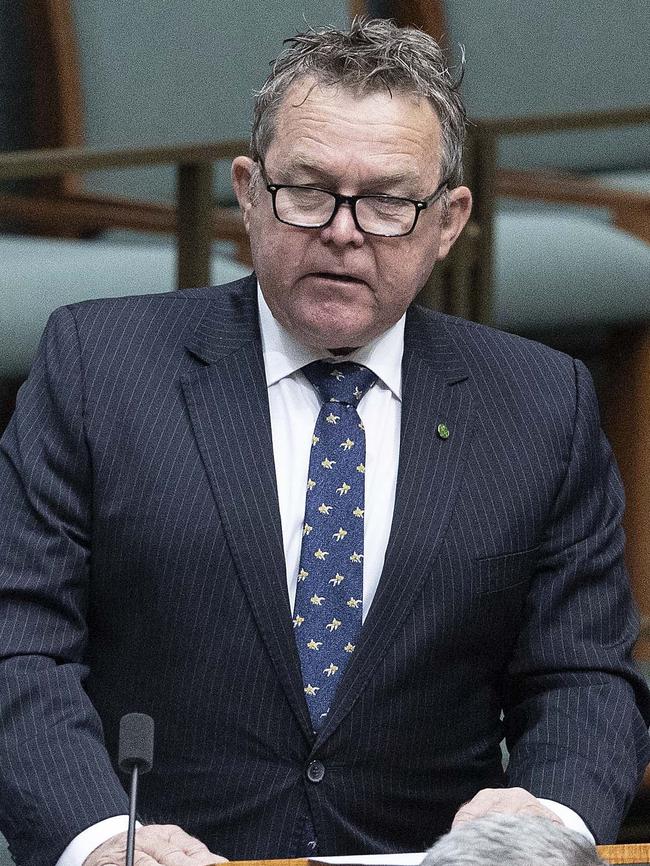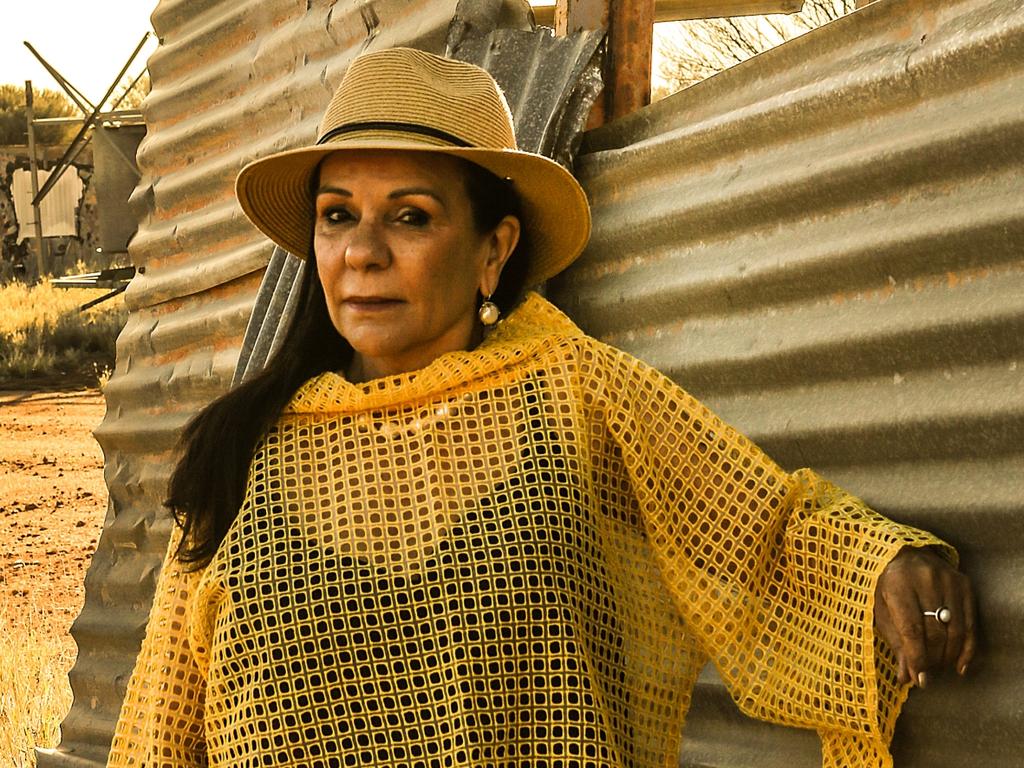QLD LNP urges Peter Dutton to oppose voice
Peter Dutton is under growing internal pressure to bind MPs to a united no position rather than allowing a conscience vote.

Queensland’s Liberal National Party has urged the federal Coalition to oppose a voice to parliament as Peter Dutton comes under growing internal pressure to bind MPs to a united “no” position, rather than allowing a conscience vote.
The Australian understands members of the LNP state council at the weekend overwhelmingly backed a resolution calling on the federal Coalition to oppose a voice in a coming referendum.
Sources said the motion was opposed by a small number of representatives in the closed session, which was attended by up to 200 state and federal MPs and party officials.
“It was only a handful opposed to the motion,” one person in the meeting said.
The motion does not bind the federal party room to a position but puts pressure on the Opposition Leader, who is a member of the Queensland division, to oppose the voice proposal being put to a referendum by Anthony Albanese.
Mr Dutton attended the state council but was not present for the vote on the voice resolution, according to sources.
The issue is expected to be discussed in the joint Coalition party room on Tuesday.
Queensland MPs Keith Pitt, Matt Canavan, Colin Boyce and Gerard Rennick told The Australian they would push for the Coalition to take a united position against the voice to parliament.
Mr Boyce, the Nationals member for the central Queensland seat of Flynn, criticised opposition legal affairs spokesman Julian Leeser for saying he supported the voice in principle.
“I think he was completely out of order in saying that,” Mr Boyce said. “I will oppose the voice. The Libs and the Nats have not formed an official position on it as yet but I suspect that is going to come soon.
“I can’t dictate what the leadership’s going to do in terms of the agenda but I think it is prudent they have a position on the whole thing, particularly given the fact that Julian Leeser … made some statements in the house.”


Mr Pitt, the Nationals’ member for Hinkler, said Mr Dutton should bind MPs to oppose the proposal “because this is a values decision and nothing else”.
“I believe all Australians are equal, not that some are more equal than others,” Mr Pitt said.
“There are some iron-clad rules in politics and one is you can never out-left the left.”
Senator Canavan said a binding party room position would still allow backbenchers to vote according to their conscience.
“I see no reason why we shouldn’t have a party room position opposed to the voice,” Senator Canavan said.
“For backbenchers in our party room, they always have the right of conscience to oppose a position of the party room. However, a party room position must be supported by members of the shadow ministry.”
Senator Rennick said he opposed the voice “on principle” and argued its remit would be expanded if it was successful.
“(Labor) have done it for every other thing they introduce; it starts off a little bit and then it goes more and more,” he said.
“This is how these things get across the line; the bloody wets argue for a conscience vote.”
Writing in The Australian last month, Liberal senator Andrew Bragg called for Coalition MPs to be given a conscience vote on the voice.







To join the conversation, please log in. Don't have an account? Register
Join the conversation, you are commenting as Logout